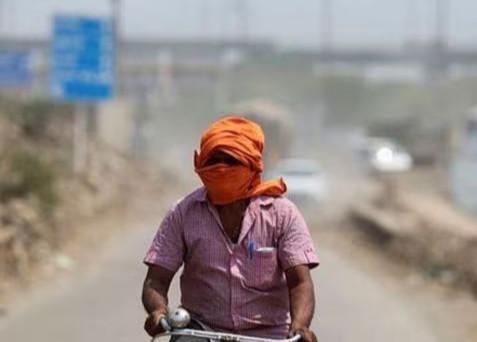
Extreme Heat Endangering Health & Productivity of Workers: Report
As the world grapples with the increasing threat of climate change, a recent report by the World Health Organisation (WHO) and the World Meteorological Organisation (WMO) has sounded the alarm on the devastating impact of extreme heat on the health and productivity of workers. According to the report, the scorching temperatures are not only affecting the well-being of workers but also significantly impacting their productivity.
The report highlights that worker productivity drops by 2-3% for every degree above 20°C. This may seem like a small percentage, but when you consider the widespread nature of extreme heat events, the cumulative impact is substantial. The report estimates that the global economy could lose up to 2% of its GDP due to heat stress, which is equivalent to trillions of dollars.
The report identified manual workers in agriculture, construction, and other sectors as being particularly vulnerable to the effects of extreme heat. These workers are often exposed to hot temperatures for extended periods, with little respite or access to cooling measures. The report noted that vulnerable populations such as children and the elderly in developing countries are also at risk, as they may not have the same level of access to cooling measures or may be more susceptible to the effects of heat.
The health risks associated with extreme heat are numerous and severe. Heatstroke, dehydration, and kidney dysfunction are just a few of the potential consequences of prolonged exposure to high temperatures. In extreme cases, heat-related illnesses can be fatal. The report emphasized the need for immediate action to protect workers from the dangers of extreme heat.
The report highlighted several recommendations for employers, governments, and individuals to take to mitigate the effects of extreme heat on workers. These include:
- Providing cooling measures such as fans, air conditioning, and shaded areas
- Encouraging workers to take regular breaks and stay hydrated
- Implementing heat stress monitoring and management systems
- Providing personal protective equipment such as hats, sunglasses, and light-colored clothing
- Encouraging flexible working arrangements, such as telecommuting or adjusting work schedules
The report also emphasized the need for governments to develop and implement heat-related policies and regulations. This could include providing funding for heat-related research and development, implementing heat-related health and safety standards, and providing resources for heat-related education and training.
In conclusion, the report by the WHO and WMO highlights the urgent need for action to protect workers from the devastating effects of extreme heat. The consequences of inaction will be severe, with significant impacts on worker health, productivity, and the global economy. It is imperative that employers, governments, and individuals take immediate action to mitigate the effects of extreme heat and protect workers from this growing threat.
Source: https://repository.inshorts.com/articles/en/PTI/45d9bd2d-ff57-417c-9e5f-831344bb34b0






